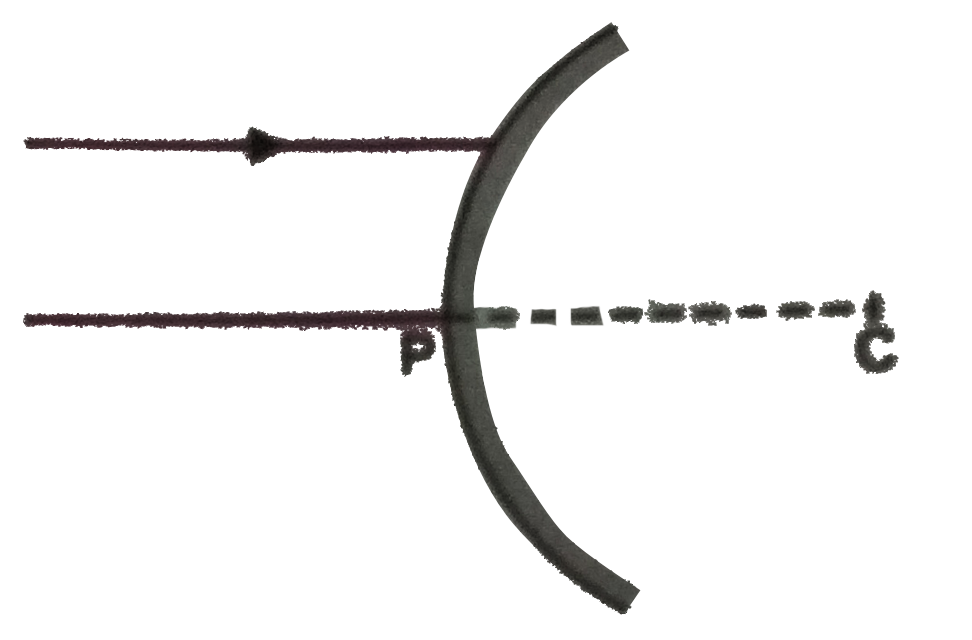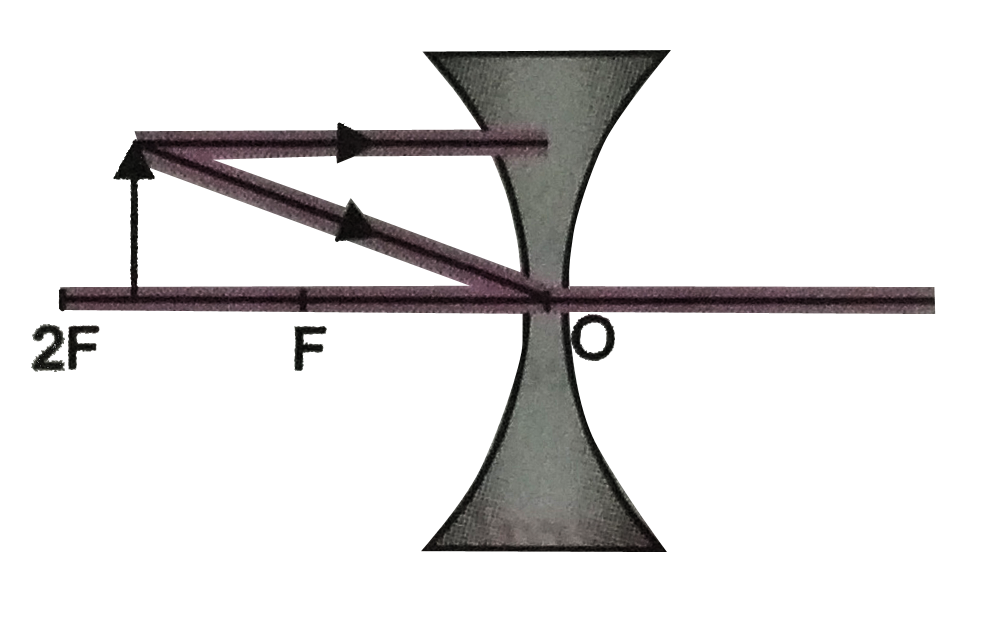Complete Solutions to Mock Test of chapter REFLECTION AND REFRACTION of Class 10 book with complete answers and questions
| Class 10 | PHYSICS |
| Chapter | REFLECTION AND REFRACTION |
| PRADEEP | Mock Test |
| Number Of Questions | 26 |
| Academic Year | 2023-24 |
Draw on your answer book and show the path of reflected ray.

View SolutionAccording to the "New Cartesian Sign Convention" for mirros, when sigh has been given to the focal length of :
(i) a concave mirror ?
(ii) a convex mirror ?
View SolutionWhat is the basic difference between reflection and refraction of light?
View SolutionDefine absolute refractive index of a medium. Find its value for glass in which speed of light is `2 xx 10^(8)m//s`.
View SolutionThe focal length of a convex mirror is 30cm. What is the distance of its centre of curvature from its focus?
View SolutionHow will you distinguish between a plane mirror, a convex mirror and a concave mirror without touching them?
View SolutionDraw the course of a rays for tracing image of an object held between pole and principal focus of a concave mirror. State the position and nature of image formed.
or
Draw the course of rays for tracing image of an object held between optical centre and principal focus of a convex lens. State the nature of image formed.
View SolutionWhat is meant by linear magnification produced by a spherical mirror ? Obtain the formula in terms of object distance and image distnace.
View SolutionAn object is placed at a distance of 20 cm in front of a convex mirror of radius of curvature 30 cm. Find the position and nature of the image.
View Solution
Draw the figure on your answer book and complete the path of the rays, What is the nature of the image?
View SolutionFind the position of an object, which when placed in front of a concave mirror of radius of curvature 40 cm produces a virtual image, which is twice the size of the object.
View SolutionExplain with the help of a diagram, why a rod immersed partially in a transparent liquid appears to be bent at the surface of the liquid.
View SolutionWhat is meant by power of a lens ? When is it positive or negative? Define one dioptre.
View SolutionAn object of height `2 cm` is held at a distance of `40 cm` in front of a concave lens of power `- 5D`. Find the size of the image?
View SolutionState the three laws of refraction of light.
or
A convergent lens of power `5 D` is combined with a divergent lens of power `-3D`. What is the focal length of the combination?
View Solution(a) Discuss briefly the conditions for no refraction
(b) What is the difference between mirror formula and lens formula?
View Solution(a) State the relation between object distance, image distance and focal length of the mirror. Give the New Cartesian Sign Conventions used.
(b) A concave mirror forms a virtual and erect image at a distance of 30 cm from the mirror when the object is held at 10 cm in front of the mirror. Calculate focal length of the mirror.
View SolutionProve that a ray of light emerges from a rectangular glass slab in a direction parallel to that in which it entered the glass slab. What is lateral displacement?
View Solution(a) How will you distinguish between convex lens and concave lense without touching them?
(b) Linear magnification of a concave lens is always positive, whereas that of a convex lens can be both, positive or negative . Why?
View SolutionIn going from a rarer to a denser medium, a ray of light bends towards normal. And in going from a denser to a rarer medium, a ray of light bends away from normal. Explain why.
View SolutionHow many refractions does a ray of light undergo on passing through a glass slab? What is the net deviation of the ray ?
View SolutionIf glass slab is replaced by a hollow slab filled with water, will the net deviation change? For given angle of incidence, will the deviation of the ray in first refraction increase `3s` or decreases compared to the one in glass slab?
View SolutionFocal length of a convex lens in air is 25 cm. It is cut into two equal halves along its principal axis. What will be the focal length of each half ?
View SolutionTwo concave spherical mirrors are parts of two spheres of diameters 1:3. What is the ratio of their focal lengths?
View SolutionCan we find rough focal length of a convex mirror ? If yes, how? If no, why not?
View SolutionYou are given a concave mirror of focal length 30 cm. How can you form a real image of the size of the object using this mirror?
View Solution
Mock Test questions and complete solutions for chapter REFLECTION AND REFRACTION of PRADEEP PHYSICS (HINGLISH) of Class 10